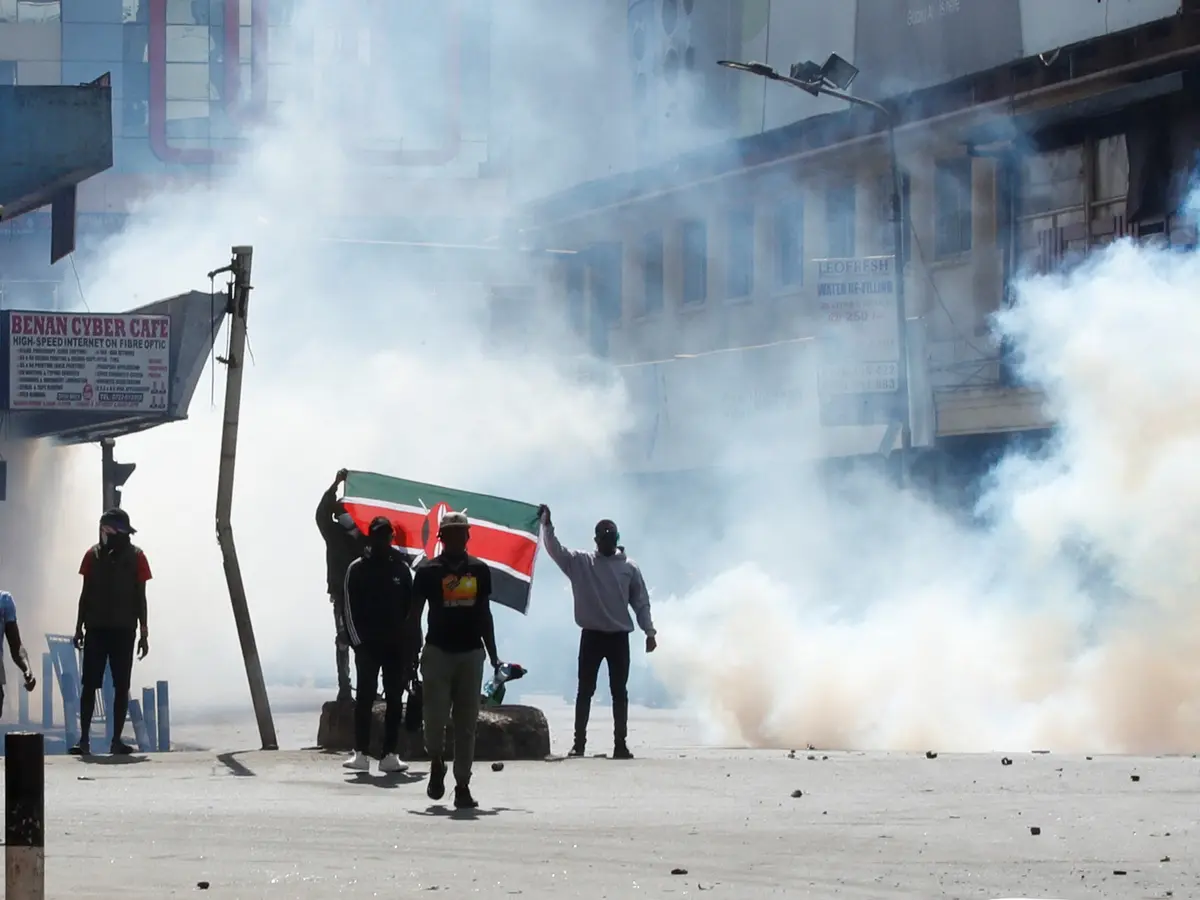
Kenya forbids protests in the heart of Nairobi and attributes it to criminal infiltration
Kenya’s administration intensified its plea on Thursday for the weeks-long protests to end, citing gang activity as the reason behind the police ban on marches in the city’s center, Nairobi.
In the midst of a strong police presence around Nairobi on Thursday, some activists called for people to congregate with camping gear to “occupy” Uhuru Park, which is close to the city center.
The youth-led demonstrations against the proposed tax increases that erupted throughout Kenya a month ago resulted in the deaths of at least 50 people. These protests persisted even after President William Ruto rescinded the legislation and dismissed nearly his entire cabinet.
In addition to demanding measures to end corruption and deal with bad governance, activists claim they want Ruto to step down.
The protests have cost the nation over 6 billion Kenyan shillings ($46 million), according to government spokesman Isaac Mwaura. He did not provide an explanation for this estimate.
Mwaura made a televised address saying, “The president and the government at large (have) heard you loud and clear and we are ready to act on your concerns.”
The largest crisis of Ruto’s two years in office has been brought about by the protests, which were planned online without the apparent backing of opposition political personalities.
Chief of Police Douglas Kanja Kiricho stated in a statement late on Wednesday, “We have credible intelligence that organized criminal groups are planning to take advantage of the ongoing protests to execute their attacks, including looting.”
“No demonstrations will be permitted in the Nairobi Central Business District and its surroundings until further notice to ensure public safety.”
Government on a Broad Basis
Ruto made a compromise last week when he said he would establish a broad-based administration, but the opposition coalition rejected the proposal on Wednesday and demanded a constitutional convention in its place.
After starting out calmly, the demonstrations turned violent.
On June 25, a few protestors briefly broke into parliament, and the police opened fire.
In an attempt to address the demonstrators’ complaints, Ruto’s office scheduled “multi-sectoral” discussions for this week, but as of Thursday, there was no indication that these had started.
The majority of the prominent protestors have turned down the offer and instead demanded that urgent action be taken on problems like corruption.
In response to the protest ban, activist Boniface Mwangi posted on social media site X, saying, “(The police and president Ruto) have no power to suspend rights guaranteed by the constitution.”
Media coverage of the protests has been advised to refrain from “perpetuating” violence by the Communications Authority of Kenya (CA), a regulatory authority, since this might potentially lead to widespread civil disturbance in the nation.
CA Chief David Mugonyi addressed a letter to a media executive on July 17 alleging that some publications had “compromised objectivity and balance in the reporting of crime, security operations and/or crisis situations.” The letter was viewed by Reuters.
$1 equals 130.0000 shillings in Kenya.
All Categories
Recent Posts
Tags
+13162306000
zoneyetu@yahoo.com



